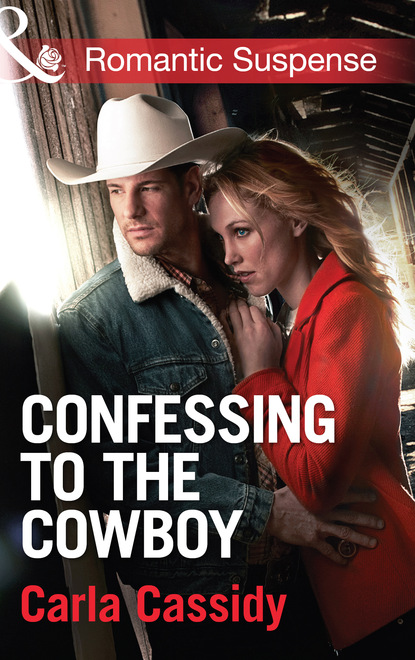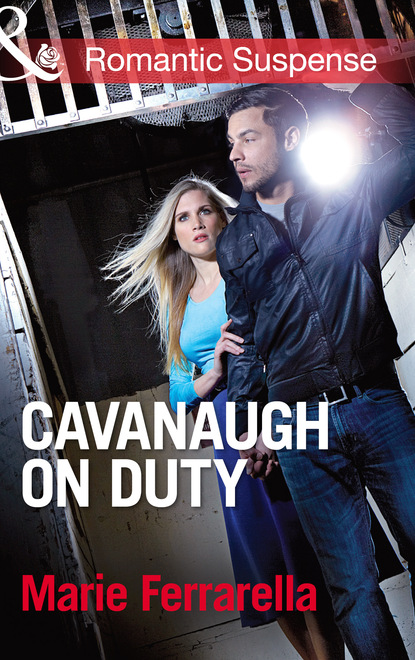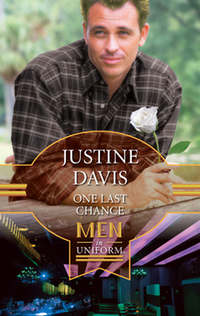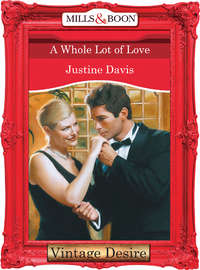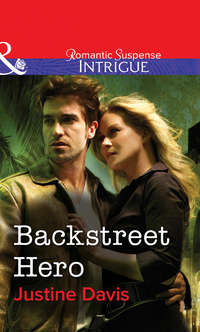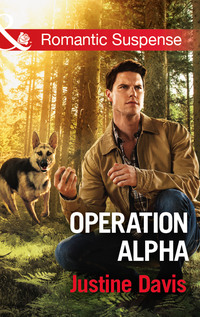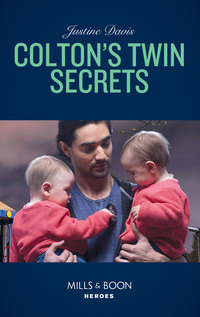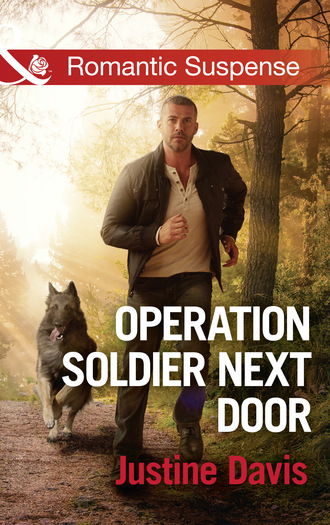
Полная версия
Operation Soldier Next Door
His thoughts had taken a decidedly raw turn then, and one she certainly wouldn’t appreciate when all she’d done was try to be helpful and neighborly, that’s all.
Really nice, neighborly young woman, sweet, thoughtful and helpful.
The memory jabbed at him, the words from the email Gramps had sent him after she’d first moved in next door.
Leave it to Gramps to omit the salient detail that she was a looker. And, of course, he’d had advice to offer at the end of that email.
You admire the pretty ones, but you marry the real ones. If you’re smart.
Not likely. Not him. Sometimes he thought about his grandparents and their sixty-year-long marriage, in love up until the day his grandmother had died five years ago. This had been their dream, this simple home surrounded by trees and life, and Gramps had never even thought about leaving. He still loved her, and Tate knew he had until his last breath. It was sometimes the only thing that gave him comfort about his death, knowing that the old man wouldn’t have minded going because he missed her so much. He even understood; his grandmother had been a heck of a woman—smart, tough, and yes, pretty—up until the disease that took her had robbed her of everything but that indomitable will.
And if you’re as lucky as I was, you get both in the same package.
Even now he smiled at the pure love in those words. They made him think of their wedding portrait, the black-and-white image stiff, formal, but yet still unable to erase the twinkle in her eyes or the amazement in his. Gram had been a looker, too, no question.
Which brought him careening back to an image of a woman with big eyes that seemed to go from blue to gray, a mane of long, dark hair and legs that went on forever. Legs that had been bare to his view. Legs that made a man think about sliding between them, of feeling them wrapped around his—
“Get your mind out of the gutter, McLaughlin,” he ordered himself sharply.
The moment he derailed that dangerous thought he became aware of a tickle at the back of his neck. Once, it would have meant he was being watched, and given where he’d been at the time, that was never a good thing. But he wasn’t there anymore, and he was relieved to see that the time it took to remember that was getting shorter and shorter.
He wanted it to be zero. He wanted his reaction to such things to be curiosity, not the instant urge to go into protect mode, or worse, attack mode. He was getting there, but he wanted to be there. Gramps had always said he was impatient. Tate supposed he’d been right. Because he was very impatient for his mind and gut to match the peace around him.
It’s normally a very peaceful neighborhood.
That’s what I wanted.
Yes, above all else, that’s what he wanted.
He turned around and found himself face-to-face with a dog. This was the dog from last night who belonged to the Foxworths.
The animal was sitting politely a few feet away, watching him. Very politely. As if at attention. And yet right at the edge of his comfort zone, as if he knew where the boundary was, somehow.
“Cutter,” he said. The dog’s tail wagged, but he didn’t move. Just watched, alertly, intensely. That steady gaze was unsettling, as was the intelligence behind those amber-flecked dark eyes.
He’d seen that kind of intensity before, in another set of canine eyes. Eyes that had belonged to the dog who was one reason he was alive today.
His stomach knotted. Cutter made him realize how much he missed that dog. Sunny had saved a lot of lives that day, alerting him and the squad in time to get nearly clear of the IED that had been set beside the road, awaiting their passage. Spahn had been killed instantly. He and Cav and Owen had only been injured, and the rest of the guys had escaped unscathed, thanks to Sunny’s warning.
This dog looked nothing like the yellow-furred Sunny, yet he still reminded Tate of her in that fierce intensity and intelligence. He had the feeling that when intent on something, Cutter would be as unswayable as Sunny had been while working, with nothing in her mind but the task of sniffing out danger in the form of explosives.
And he didn’t like the memories that the dog’s presence was stirring up. Didn’t like thinking of Sunny still over there, doing her job. Saving others as she’d saved him, intent on her work. Loyal, steadfast and unwavering until it was time to play. He’d give anything to have her race up to him again, crunchy water bottle in her mouth, banging it against him in an invitation to play.
It hurt too much.
“Go home, dog,” he said gruffly.
The dog didn’t move.
“Get,” he said, louder, fiercer.
For a moment longer the dog just sat, staring at him. And then, finally, he got to his feet and, with a last look, trotted off.
Relieved, Tate turned to go pick up his tools.
And saw his neighbor standing next to the tree where she’d left the panel. Watching.
He had no idea how long she’d been there. Maybe she was the reason for the tickle at the back of his neck, not the dog. She was frowning, clearly not happy about something. She shifted her gaze to the departing Cutter and back to him. Then she gave a shake of her head, turned on her heel and headed back toward her house.
She couldn’t have said more clearly that she didn’t like the way he’d reacted to the dog. He wasn’t proud of it himself, but it had come from someplace deep inside. He didn’t want the dog around. He brought on too many memories Tate couldn’t do anything about.
And it was just as well Lacy Steele was peeved at him. Maybe she’d stay away.
Chapter 5
It really wasn’t fair, Lacy thought as she paused in the garden to check the status of her recently transplanted tomatoes.
Grumpy people should look it, wear permanent scowls or have eyebrows forever lowered over irritated expressions.
They should not be tall, built and sexy, with gorgeous hazel eyes that seemed to change color as you looked.
So quit looking, she ordered herself.
Besides, no amount of sexy attractiveness made up for coldness toward an innocent animal. A helpful innocent animal, in fact. Hadn’t the dog discovered the source of the explosion, led the investigator right to it?
She herself found the dog charming, with his alert look and apparently instinctive knowledge of what was needed. He’d gotten her prickly neighbor to sit down when he needed to, when he’d been clearly determined to stay on his unsteady feet, hadn’t he? The dog was clever and—
Here.
She thought he’d gone, but Cutter had merely decamped to her yard and was now approaching her, slowly. She straightened from her inspection of a branch filled with tiny yellow blossoms that would hopefully become tasty, sweet, homegrown tomatoes, and some that had already begun growing tiny green rounds the size of a pea. She smiled at him.
“Well, hello, my fine lad. Looking for a better welcome? You’ll certainly find that here.”
At her first words, or maybe her tone, the dog’s tail began to wag and he trotted up to her. She was scratching his ears, smiling at the way he leaned into it. When she glanced back next door, she almost hoped her new neighbor was there, noticing the welcome the dog was getting here. A proper welcome for a sweet dog. The kind of welcome Martin would have given him. Funny, she still thought of the house as Martin’s, even though—
He was there, all right. Movement caught her gaze, and she looked in time to see him bend to pick up the tools he’d been using to affix the panel she’d provided over the damage. But he suddenly stopped, grabbing at his left shoulder in an oddly jerky motion. As he rubbed at the back of it, she remembered the scar. And the new damage done in the blast. Remorse flooded her. He had reason to be cranky. She chastised herself for judging—again—and vowed not to do it anymore, no matter how grouchy Tate McLaughlin got.
A sudden bark from Cutter drew her attention back. It was a short, happy sound, and the dog whirled and left at a run. Lacy wasn’t surprised when she looked up to see the Foxworths approaching. She followed, albeit much more slowly, smiling as they got nearer.
“Morning,” she called out.
“Hi,” Hayley Foxworth said. “Sorry about the trespasser. He just took off on us. I think he wanted to be sure everything was okay around here.”
Lacy nodded. “He checked out next door first, but my neighbor’s in a mood.” Remembering her vow she added, “I think he’s hurting a bit.”
“New or old?” Quinn asked.
“Both, I think,” Lacy said, assuming he was asking if there were any aftereffects from last night. She indicated the back of her own left shoulder. “He was kind of rubbing at the scar there.”
“Poor guy,” Hayley said.
“Don’t say that to him,” Quinn recommended. “I doubt he’d appreciate it.”
“I’m not sure he appreciates anything at the moment,” Lacy said frankly. “Not that he doesn’t have cause,” she hastened to add.
“It was a heck of a welcome to the neighborhood,” Hayley said. “We should go apologize for Cutter’s intrusion.”
“Apparently so.” Quinn’s tone was dry, and when his wife gave him a curious look he nodded toward their dog, who was already started that way. Cutter paused and looked back over his shoulder, and Lacy would have sworn his expression said, “Hurry up!”
Hayley smiled. “You know he’s got a plan.”
“He always does,” Quinn agreed, but with a roll of his eyes.
“And Tate has a problem.”
“Yes. That was definitely Cutter’s ‘fix it’ look last night.”
Lacy watched the exchange in quiet fascination, and when they started to follow the dog, she went along. Torn between what to ask first, she blurted out both of her questions. “This is a dog we’re talking about, right? And do you mean more of a problem than what happened last night?”
Hayley grinned at her. “Sort of, and yes.”
Lacy blinked. “In that order?”
Hayley laughed. “Yes.”
So, Cutter was “sort of” a dog who somehow knew that Tate had more of a problem than a freak explosion that had taken out a big chunk of his wall, barely feet from where he would have been sleeping had he not been too tired to make it to the bed? She wondered what on earth could be more of a problem than coming that close to dying, so soon after surviving another close call. It had to be big, to top that.
Then she realized she was taking them seriously about the animal knowing about said problem. She knew dogs could be incredibly sensitive and perceptive about their humans, but Tate was a complete stranger. Yet Quinn and Hayley, two perfectly normal people she suspected were very smart, had accepted easily that their dog not only knew about this problem, but had A Plan.
She watched as Cutter came to a halt, not near the hole in the wall and the temporary fix, but near the back door that opened out onto the flagstone patio Martin had been so rightfully proud of, having done it himself. The dog sat and stared at that back door as if willing it to open, sort of in the way she’d seen border collies will sheep to do their bidding.
Quinn and Hayley waited silently. Or, at least, not communicating with words; she saw them look at each other and guessed they were one of those couples who didn’t always need to talk to know what each other was thinking. Or apparently what their dog was thinking.
It wasn’t that she didn’t know dogs were amazing. She loved them, had often thought about adopting one since she’d moved here, but she’d been too busy getting her home-based tutoring service up and couldn’t give an animal the attention it deserved.
And she could accept that Cutter was particularly perceptive; she’d seen it herself. But however sensitive, perceptive and amazing dogs were, it was a jump from that to reading minds, hearts and the unseen. Wasn’t it?
“What kind of problem do you think he has?” It was all she could think of to say.
“Quinn has his doubts about the explosion,” Hayley said.
Lacy frowned. “What do you mean?”
“Just what I said last night,” Quinn answered. “It takes a great deal to get one of those tanks to explode. Just a leaky or open valve wouldn’t do it. It takes something like that plus extreme heat.”
“You mean it must have caught fire?”
“Even then the escaping vapor would likely just burn, not explode. But if that second tank was close, or stacked on top of the leaking one...”
“Then it would explode?”
“Could.”
Lacy looked toward Martin’s house. Her brows lowered in puzzlement. “But how could it just catch fire?”
“Exactly,” Quinn said, his voice grim.
She was pondering the ramifications of that when Hayley said quietly, “Here he comes. Probably wondering what we’re all doing out here.”
The door Cutter had been so intent on swung open. Tate stepped out and let it shut on its own behind him. He stopped a yard or so away. Outside personal space, Lacy thought. Expressing that he didn’t consider them friends enough to get closer? Wary, or just unsociable? Or perhaps just plain rude?
“Make a habit of trespassing?” were his first words.
Lacy’s brows rose. Okay, rude won that one, she thought.
Hayley, with more benevolence than she herself would have shown at that—although perhaps living farther away she had less reason to be concerned about this man’s attitude—answered with a smile.
“Only to apologize for this one trespassing.” She gestured at the dog, who was watching him steadily.
“Ought to keep him under control,” Tate said to Hayley, still sounding stiff and cold.
“Many people should keep many things under control,” Quinn said. His voice was steady, inflectionless and nearly as cold as Tate’s, but somehow Lacy heard warning and threat and heat in it. She had the feeling that Tate would be unwise to ever talk to Hayley Foxworth like that again.
He seemed to realize it. She saw his gaze flick to Quinn, then back to Hayley. After a second, he nodded. “Yes. They should. Especially me. I’m sorry.”
It came out clipped, and rather flat, but it was an apology and Hayley moved quickly to accept.
“It’s all right. You’ve had a rough twenty-four hours, just when you should have had peace.”
At her gentle words he seemed utterly at a loss. For an instant he closed his eyes and looked chagrined enough that even Quinn appeared satisfied.
“And we’ll leave you to that peace,” he said, and slipped an arm around Hayley as they turned to go. Cutter seemed less than willing, but eventually, at a sharp whistle from Quinn, the dog followed, looking back at Tate the whole time.
“They’re nice people,” Lacy said. “Good people.”
“Mmm.”
Nice non-answer. Prodded by his gruffness, she added, “So am I.”
He looked at her then. She couldn’t read anything in his shuttered expression.
“Have it your own way, then,” she said, exasperated. Then, unable to stop herself in the face of his coldness toward people—and a dog—she found so likable, she added, “But Martin would be ashamed of your manners.
“Nice way to keep your vow,” she muttered to herself as she turned on her heel and went back to her house.
It was just as well the rest of her day would be taken up with work.
Chapter 6
Okay, so she had a point, Tate thought as he rubbed a hand over his stubbled jaw the next morning, debating whether to bother shaving. There was a difference between being aloof and being downright rude, and he’d crossed the line.
Martin would be ashamed of your manners.
That had stung like few things could. The thought of his grandfather being ashamed of him for any reason had the power to truly unsettle him. Much more than his parents, who had never agreed with most of his life choices, anyway. Of course, his father agreed with his mother if she said grass was purple. He was quite capable of standing up to anyone else—especially his son—but Michelle McLaughlin’s word was law.
If they’d had their way, he’d have gone to that Ivy League school, taken that knack he had for numbers and built a career around it. Wall Street, maybe. Never mind that the thought of being shut up in an office for hours a day made him twitchy, or worse. He shook his head at himself.
Shave, he thought. Then get started. It was already late, after a restless night trying to catch up on sleep. His makeshift bed on the big air mattress in the shop had been okay—he’d slept in much, much worse—but he didn’t want it to be long-term. He’d had to dig a blanket out of Gram’s linen closet, since everything that had been on the bed had been destroyed.
And the smell. The too-familiar smell, the lingering odor of destruction, that crept into the nostrils and stayed, haunting his dreams.
Maybe fresh paint would help that, though. At least it would smell like something had been done. But he was a long list of repairs away from painting.
He finished shaving, ran a hand over his still-damp hair, which was all it needed. He was going to keep that, he decided. Worrying about what his hair looked like was way down on his list of civilian habits to reacquire.
He pulled the list he’d made out of his pocket and read it again, looking for anything he’d forgotten. And trying to figure out how he was going to get it here when his only wheels were a motorcycle. He thought of Gramps’s pride and joy, that classic red Chevy El Camino, but it was sealed up on blocks in the back of the shop, and it would take more time to get it ready to drive than he wanted to spend before getting started on repairs. Although the makeshift fix with the Plexiglas had worked better than he’d expected, and it was nearly summer, dry and warming up already, so maybe he wasn’t in quite the rush he’d first thought he was.
Thanks to one Lacy Steele.
What a name. But he’d liked the way she’d kidded about it. She’d probably heard so many jokes she just blew them off.
In the end it went well enough. He found that the local lumber store he’d feared would be too small to have what he needed actually had a decent selection, thanks to a storage yard a short distance away. And there he found a guy who seemed to have a good knowledge of what he’d need and some tips on how to proceed, and the name of a good drywall guy for the texture coat, which Tate wrote down, thankfully. Best of all, they had a small pickup he could borrow to get the stuff home, then come back and get his bike.
No, he thought as he made the trip back, the best thing was that everyone he’d encountered on this supply trip had known, and obviously liked, his grandfather. The steady condolences were a little rough when he was still grieving rather fiercely—being in Gramps’s house, amid his things, was turning out to be both blessing and curse—but it was good to know he hadn’t been forgotten.
There was a lot to be said for this small-town stuff, he thought.
And Mom would cringe at the very idea. Reason enough to stick it out.
He was honest enough to admit tweaking her prejudices might be the tiniest bit of his motivation for not just accepting this inheritance, but actually coming here with the intention of staying. His ultra-cosmopolitan mother had shuddered at the very idea of living in a town of less than five thousand.
By late afternoon he had the last scraps of the destroyed shed cleared away, tackling that first to give the area more time to dry out from the fire department’s efforts to keep the damage to a minimum. He might need to give the guts of the damaged wall time to dry completely, as well, so he limited himself to cutting away the ruined drywall with his newly acquired drywall saw and clearing out the section of damaged roof and ceiling.
He assessed the situation and his condition. There was still plenty of light, but he could feel the slight hum in his head that told him he was tired. And that was when mistakes happened. So he decided further work should wait until tomorrow, when he would hopefully have had a decent night’s sleep. This wasn’t his area of expertise—he wasn’t sure what, if anything, was anymore—and he wanted to go slowly and carefully. So he would—
The doorbell, with Gramps’s selection of the chimes of Big Ben in tribute to his time in England before and after the war, interrupted his thoughts. Since Tate knew no one else here, it wasn’t a surprise to find Lacy on his front porch. His first thought was that she was even prettier than he remembered, although he thought he preferred the sleep-tousled look for rather primal, male reasons.
His second thought was that whatever she had in that pot she was carrying smelled so good it woke his stomach up with a vengeance.
“I rang this time,” she pointed out.
He nodded. Made an effort. “I thought maybe you were that dog again.” He realized suddenly how that sounded. “I only meant—”
She waved it off with a laugh. “He does seem clever enough to figure out how to ring a doorbell, doesn’t he?”
He was relieved she hadn’t taken offense; he’d already ticked her off quite enough.
“I was making beef stew for dinner, so I made extra.” She held out the pot, which she was holding with a towel between it and her hands, so apparently it was hot.
“Extra?”
“For you,” she said patiently, lifting the pot slightly. “I figured you’d be too busy to fix anything. You could have borrowed my car, you know.”
He blinked. “What?”
“My car. To go get your stuff.”
“Oh.”
If he had ever done worse at casual conversation, he couldn’t remember when. And she clearly noticed, because after a moment of silence she gave him an amazed look and a slight shake of her head.
“I would have invited you over for dinner, but since you don’t seem inclined to socialize, I brought it here.”
A sudden image shot through his mind of sitting across a table from her, like a normal person, chatting easily rather than stumbling along like this, uncertain of why he found it so difficult.
“It would help,” she said, rather pointedly again, “if you took this. It’s getting heavy.”
Hastily he reached out.
“Take the towel, too, it’s hot,” she warned.
“You didn’t have to do that,” he said as he took the indeed heavy pot, wondering if he sounded as awkward as he felt. And as if on cue, his stomach growled loudly.
Her smile was genuine this time. “Obviously somebody needs to feed that beast.”
Somehow he found the grace to smile back at her. “Guess so.”
“When was the last time you ate?”
His brow furrowed as he thought.
“The fact that you have to try to remember means it’s been too long. No wonder you’re grumpy. Eat something.”
His mouth twisted wryly. “Grumpy was a dwarf,” he said.
She arched one eyebrow at him. “Old Disney references?”
“Gramps,” he explained.
“Ah. A traditionalist.”
“Still on videotape, if I remember right.”
She laughed at that. He liked the sound of it.
“Thank you,” he said, lifting the pot. His stomach growled again.
“Eat before it gets cold. If you have leftovers, it’s good over noodles.”
He nodded. Realized much too late that he’d made her stand outside holding a heavy pot for far too long. Feeling that required...something, he said hastily, “I’d ask you in, but it still reeks in there.”
“Like a place that’s had a big hole blown in it?”
He nodded again. Drew in a deep breath as he set the pot on the glass table beside the door, which thankfully hadn’t shattered from the concussion of the blast. And wondered why this seemed so hard. “About the grumpy... It was a long trip, and then the explosion. I—I’m sorry.”
She gave him a look he couldn’t quite interpret. “Actually, I think it’s the dog you should apologize to. I can at least understand.”
He sighed then. “I know.”
“You don’t like dogs?”
“I love dogs. I just... He reminded me of another one.”
“Does he? I’ve never seen one with coloring like that.”
“I don’t mean looks. More intensity.”




